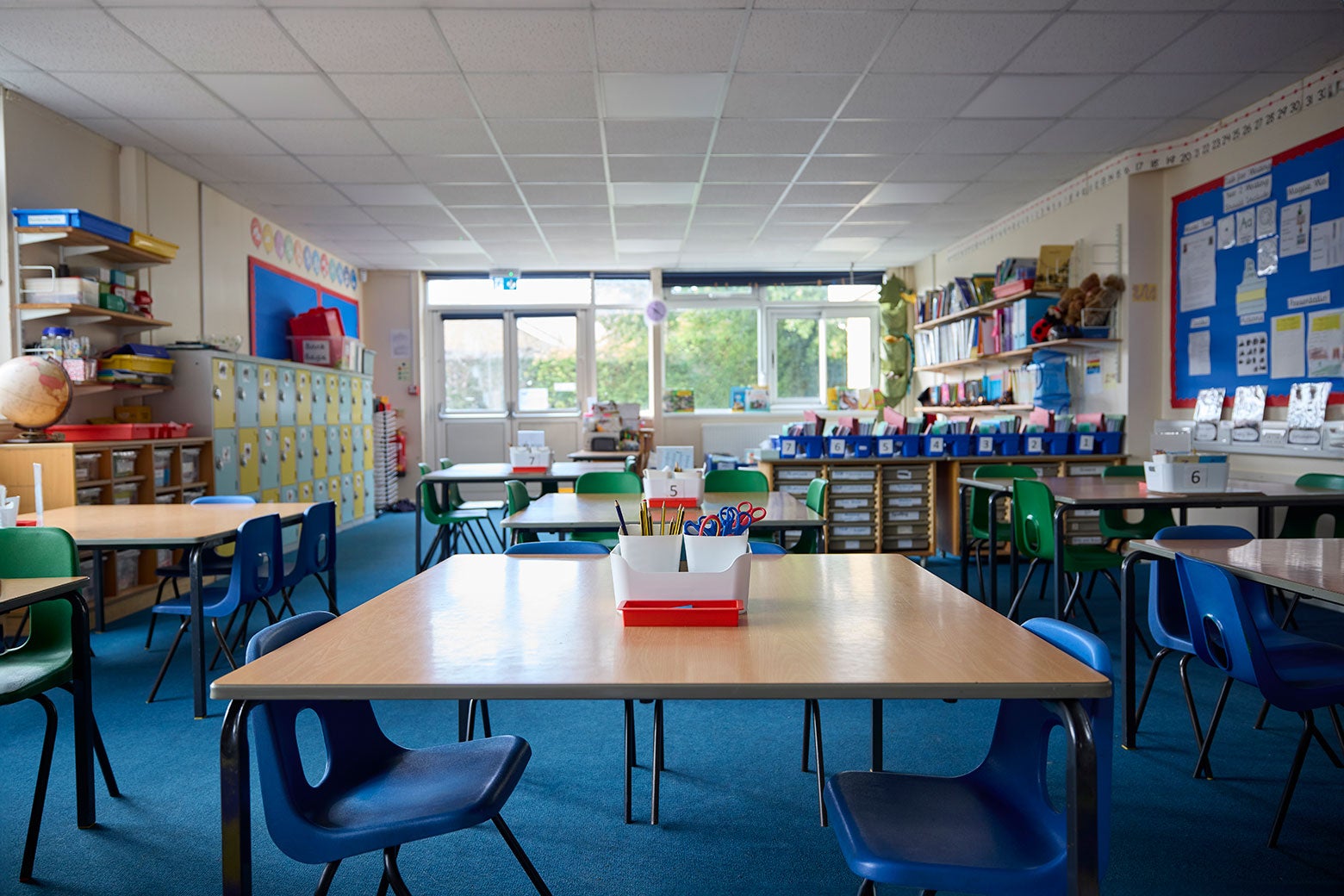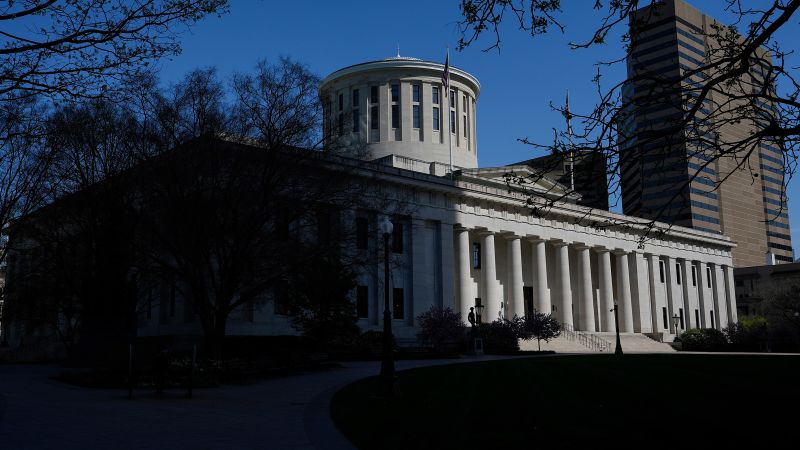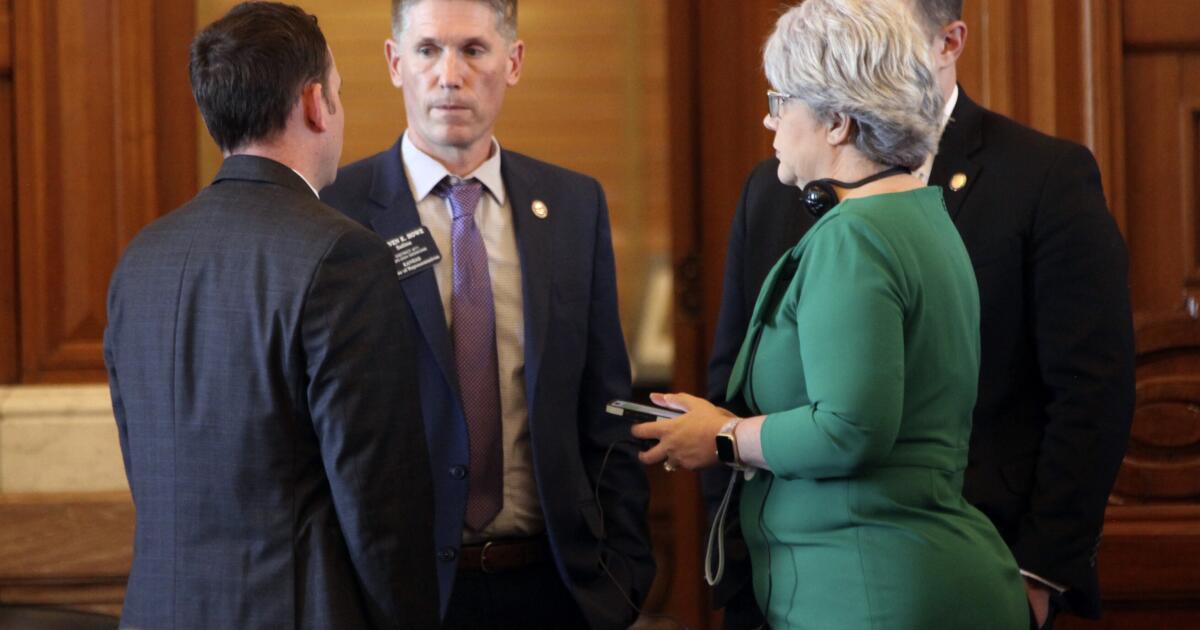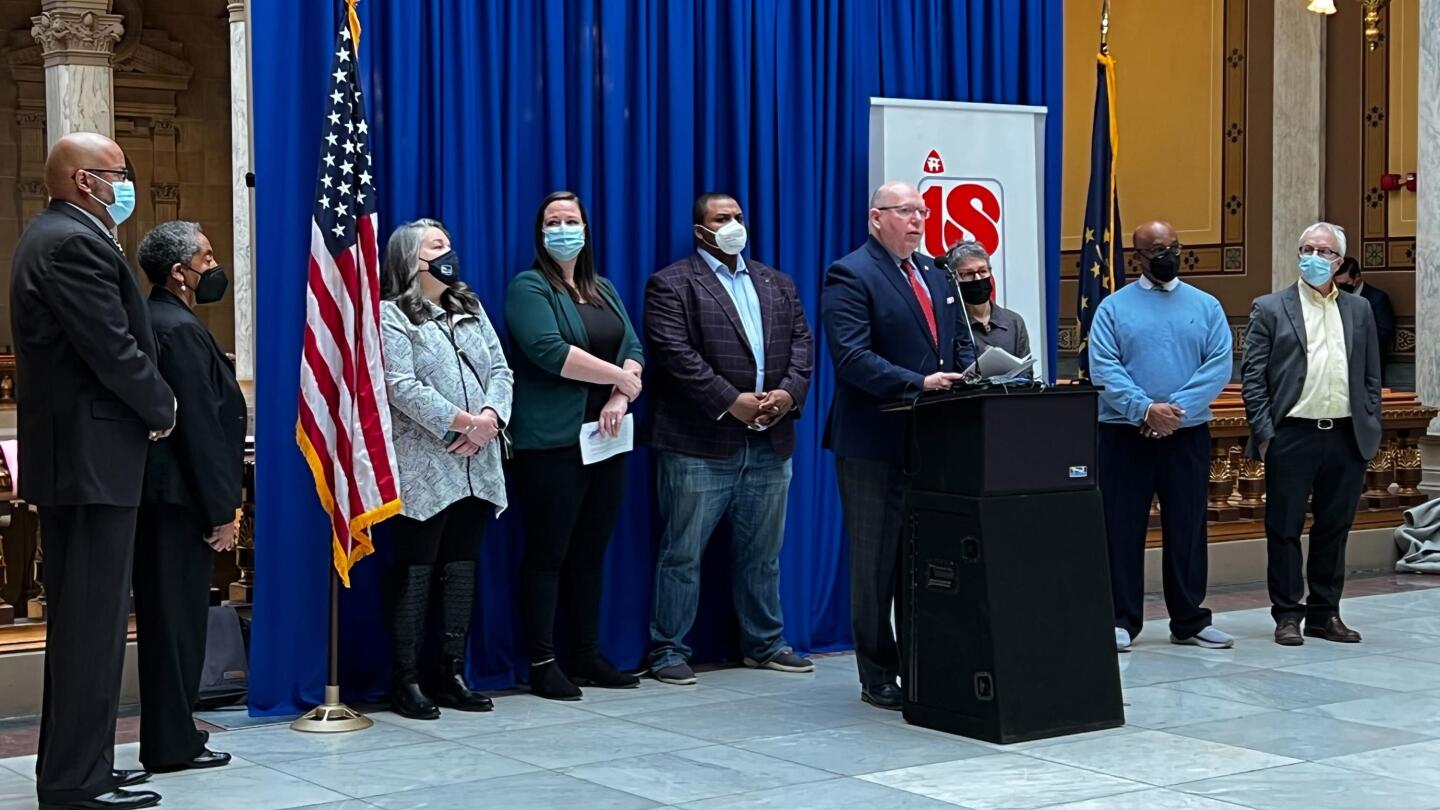
Indiana education groups mount opposition to curriculum bill
Associated PressINDIANAPOLIS — Indiana teachers and others are mounting opposition to a House bill that Republican lawmakers say would increase transparency of school curricula, even after Senate leaders decided to effectively abandon their version of the legislation. It would limit what teachers can say in class on sensitive subjects, prohibiting them from using materials that “present any form of racial or sex-stereotyping or blame on the basis of sex, race, ethnicity, religion, color, national origin, or political affiliation.” Representatives from the Indiana State Teachers Association, the largest teachers union in the state, joined a coalition of civil rights, faith and public education groups at the Indiana Statehouse on Wednesday to oppose the bill, which they said aims to censor classroom instruction and place unnecessary additional workloads on educators. Republican Rep. Tony Cook of Cicero, who authored the House bill, has said the legislation strives to ensure educators “remain impartial in teaching curriculum” and “ensure that students are free to express their own beliefs and viewpoints concerning curricular materials and educational activities without discrimination.” In response to teachers’ ongoing criticism, the bill has been amended to expand some definitions of what can be taught about “historical injustices,” and to stipulate that while schools must post class materials online, teachers do not have to upload daily lesson plans. The Senate bill, authored by Republican Sen. Scott Baldwin of Noblesville, would have prohibited K-12 schools from requiring a student or employee to “engage in training, orientation, or therapy that presents any form of racial or sex stereotyping or blame on the basis of sex, race, ethnicity, religion, color, national origin, or political affiliation.” Teachers would also not be allowed to “include or promote” such concepts in class. Bill author Republican Sen. Jim Tomes of Wadesville said his legislation would remove educational purposes as reason that public school libraries and public libraries could claim legal protection for sharing “harmful material” with minors.
History of this topic
Indiana lawmakers aim to adjourn their session early. Here’s what’s at stake in the final week
Associated PressLiteracy bill that would hold back thousands more third graders advances in Indiana
Associated PressIndiana legislation could hold back thousands of third graders who can’t read
Associated Press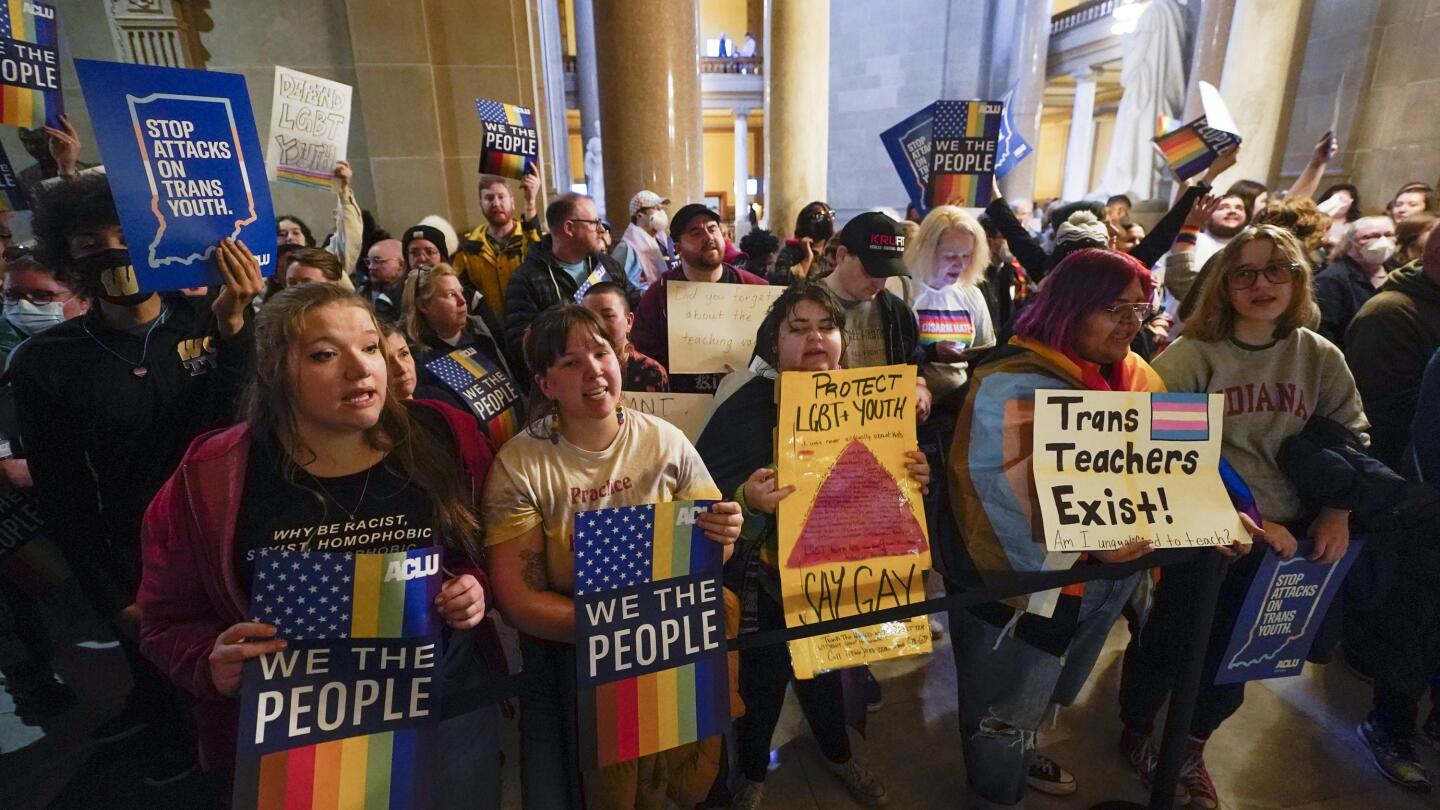
Indiana House advances bill that could out trans students
Associated Press
GOP push for teacher gun training passes Indiana House
Associated Press
Missouri Senate OKs limits on race education in schools
Associated Press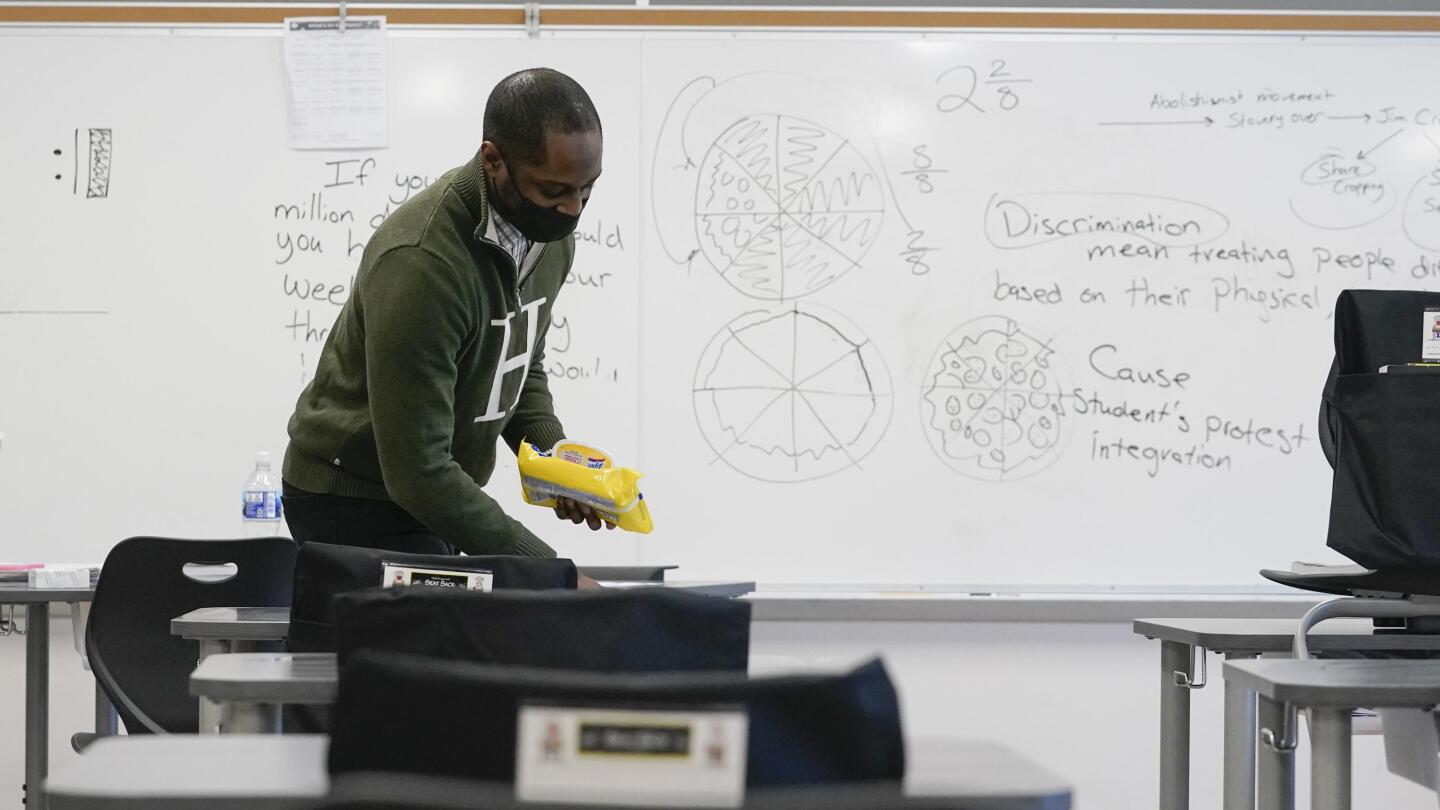
Lawmakers consider major changes to Indiana curriculum bill
Associated Press
GOP pushes US schools to post all class materials online
Associated Press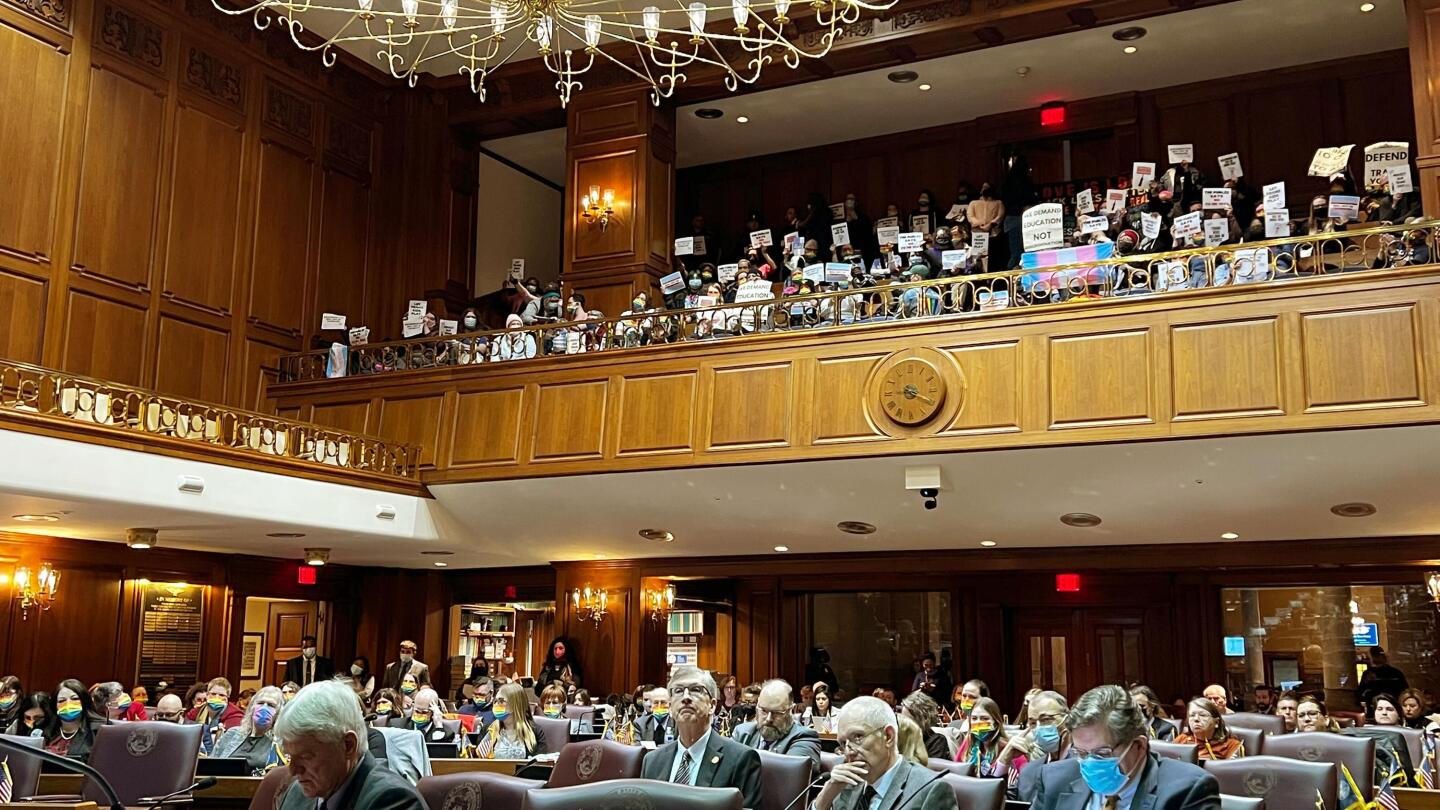
Indiana lawmakers advance bill targeting K-12 curriculum
Associated Press
Indiana Senate abandons contentious school curriculum bill
Associated Press
Indiana teachers push back against school curriculum bills
Associated Press
Indiana Senate bill sparks debate over school curriculum
Associated PressDiscover Related





